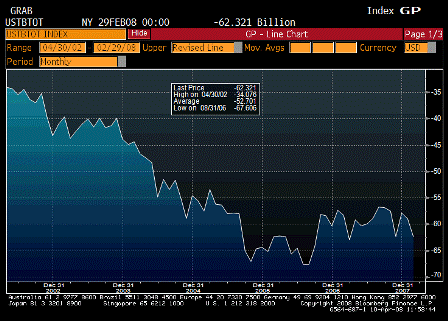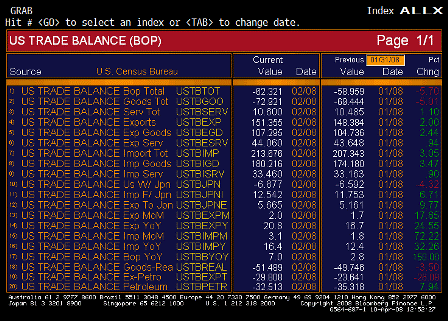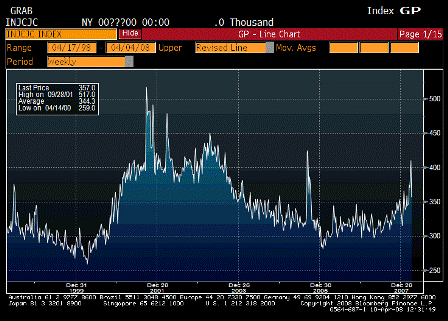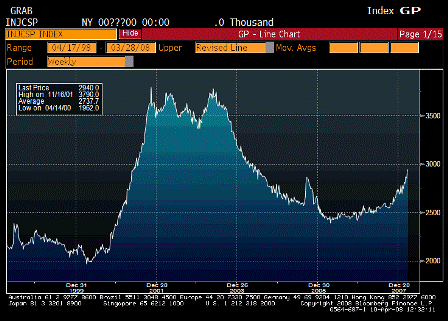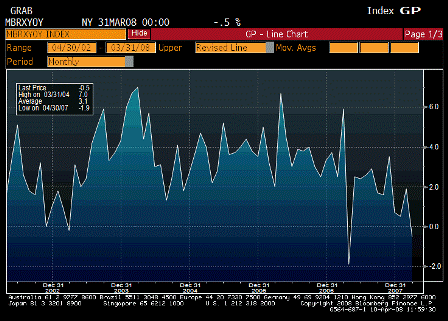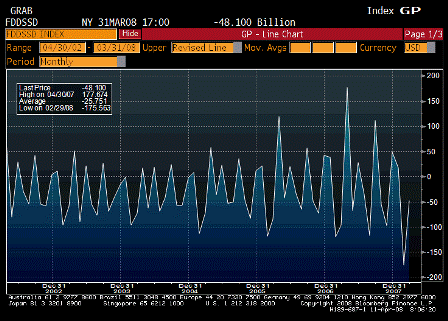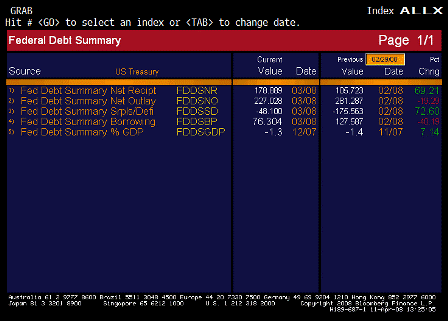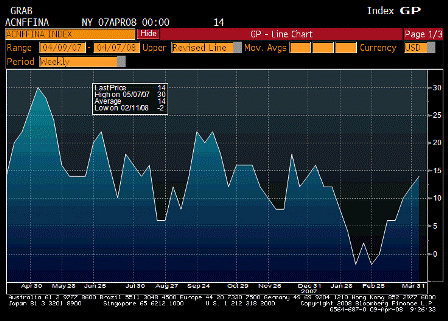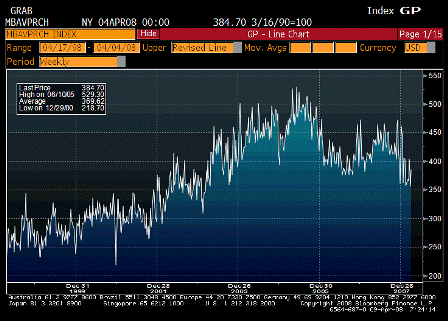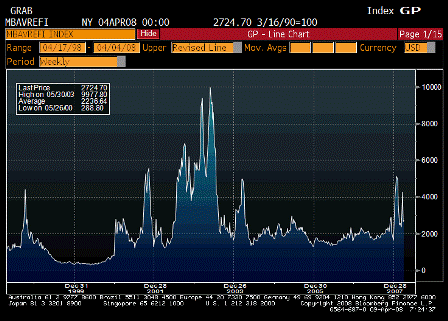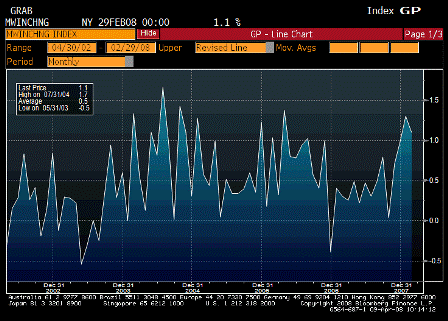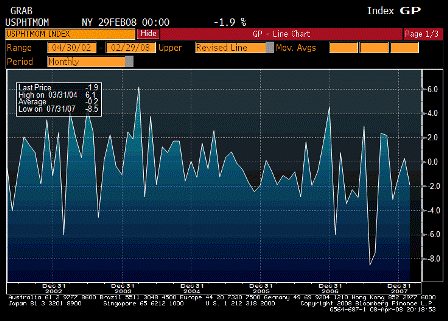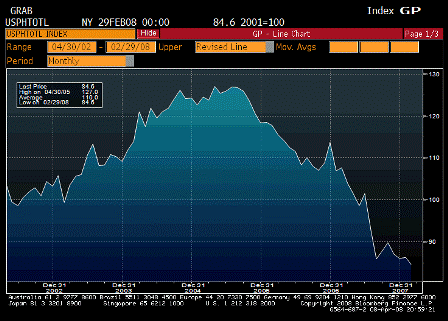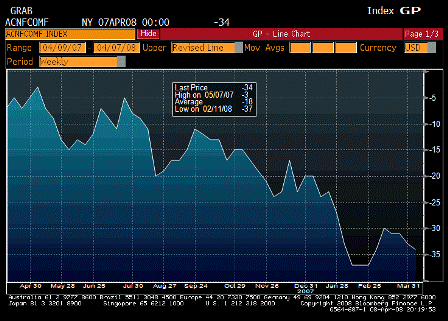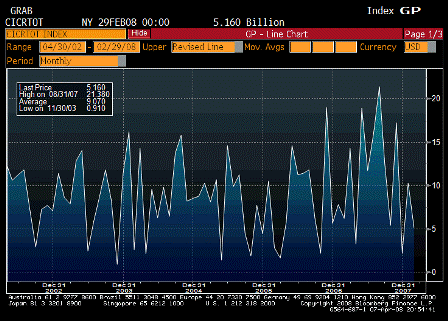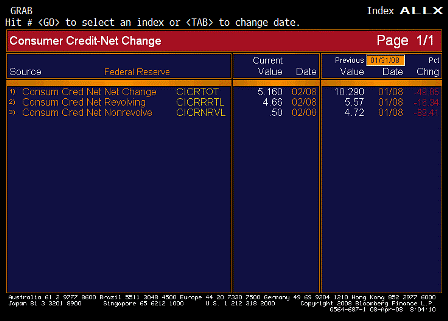Trade Balance (Feb)
Trade Balance TABLE
| Survey | -$57.5B |
| Actual | -$62.3B |
| Prior | -$58.2B |
| Revised | -$59.0B |
Exports still accelerating- up 2% over last month, a 26%+ annual rate, and 20.8% year over year.
Looks like an anomaly with imports, up 3.1% month over month and petroleum imports down. Very odd for non petroleum imports to be up – look for adjustments with next month’s number.
While this February number means Q1 GDP will be revised lower, the March report is likely to more than reverse this.
Initial Jobless Claims (Apr 5)
| Survey | 383K |
| Actual | 357K |
| Prior | 407K |
| Revised | 410K |
Back down but 4 week moving average still inching up some.
Not at recession levels yet.
Continuing Claims (Mar 29)
| Survey | 2935K |
| Actual | 2840K |
| Prior | 2937K |
| Revised | n/a |
This lags a week. It has moved up over the last year, but still far from previous recession levels.
ICSC Chain Stores Sales YoY (Mar)
| Survey | 0.9% |
| Actual | -0.5% |
| Prior | 1.9% |
| Revised | n/a |
Consumer remained weak in March – that’s what an export economy looks like.
Monthly Budget Statement (Mar)
| Survey | -$70.0B |
| Actual | -$48.1B |
| Prior | -$96.3B |
| Revised | n/a |

